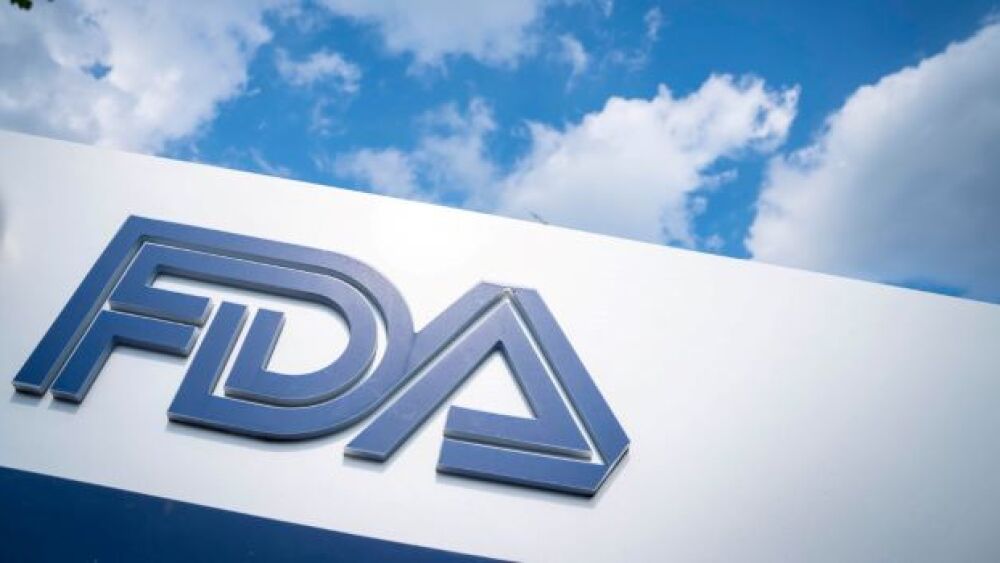Sometimes the U.S. Food and Drug Administration (FDA) runs ahead of schedule. In the case of this week’s two PDUFA dates, that was completely true. Here’s a look.
Sarah Silbiger/Getty Images
Sometimes the U.S. Food and Drug Administration (FDA) runs ahead of schedule. In the case of this week’s two PDUFA dates, that was completely true. Here’s a look.
Impel NeuroPharma’s Trudhesa for Migraine
Impel NeuroPharma had a target action date of September 6, 2021, for its New Drug Application (NDA) for Trudhesa) for the acute treatment of migraine headaches with or without aura in adults. On September 3, the FDA approved the drug for that indication.
The drug is administered using the company’s proprietary Precision Olfactory Delivery (POD) technology, gently delivering dihydroergotamine mesylate (DHE) to the bloodstream via the upper nasal spray. The drug bypasses the gut and potential absorption problems. The company plans to launch the drug in early October 2021.
It was based on data from the Phase III STOP301 trial. In it, more than 5,650 migraine attacks were treated over 24 or 52 weeks. The primary objective was safety and tolerability, and exploratory objectives included efficacy. The drug was generally well tolerated and exploratory efficacy findings demonstrated rapid, sustained and consistent symptom relief.
“We are delighted with the approval of Trudhesa and are proud to offer the millions of Americans with migraine a non-oral, acute treatment option that may provide rapid, sustained, and consistent relief, even when taken late into a migraine attack,” said Adrian Adams, Chairman and Chief Executive Officer of Impel. “The approval of Trudhesa marks the culmination of more than a decade of research and advanced engineering to pair the proven efficacy of DHE with our innovative POD technology. We are grateful for all the patients and investigators who participated in our clinical trials and who were instrumental in bringing this needed advancement to the migraine community.”
Impel plans to expand its specialty sales force from 60 to 120 representatives. They will target an additional 8,000 high prescribing physicians that the company believes will allow them to expand coverage to 45% of all migraine treatment prescriptions in the U.S.
Merck’s Keytruda for Locally Advanced Cutaneous Squamous Cell Carcinoma
Merck’s blockbuster checkpoint inhibitor Keytruda (pembrolizumab) had a target action date of September 9 for a supplemental Biologics License Application (sBLA) for yet another indication, this time for locally advanced cutaneous squamous cell carcinoma (cSCC) that is not curable by surgery or radiation. The data it is built on came out of the KEYNOTE-629 clinical trial. In this case, the FDA was way ahead of schedule, having approved the drug for this indication on July 6.
In the KEYNOTE-629 study, Keytruda demonstrated an objective response rate (ORR) of 50%, and a complete response rate of 17% and a partial response rate of 33% in patients with locally advanced disease. In 27 patients that responded, 81% had a duration of response (DOR) of six months or longer, and 37% had a DOR of a year or longer.
“This approval is great news for these patients and further demonstrates Merck’s commitment to the skin cancer community,” said Vicki Goodman, Vice President, Clinical Research, Merck Research Laboratories. “Keytruda has shown meaningful efficacy in patients with locally advanced or recurrent or metastatic cutaneous squamous cell carcinoma that cannot be cured by surgery or radiation. This expanded indication reinforces the role of Keytruda in this cancer type, which is the second most common form of non-melanoma skin cancer.”





